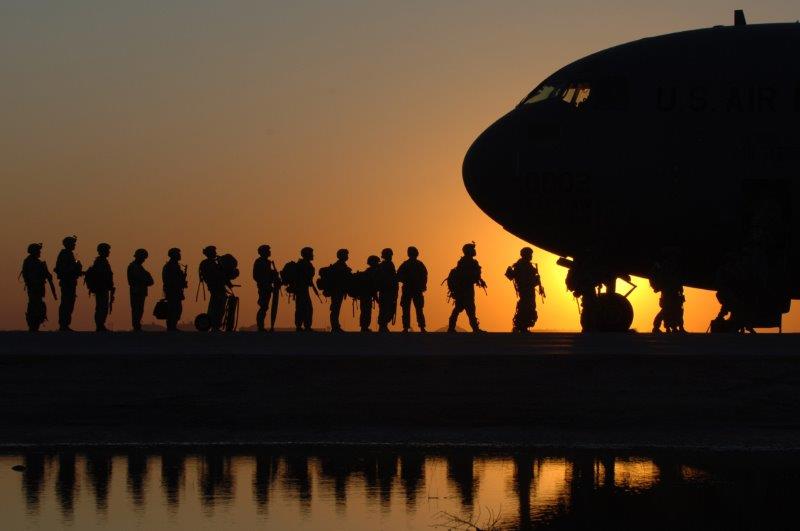The Vietnam War, a conflict shrouded in tales of heroism and enigma, brought to light intriguing stories such as 'the lost patrol' and the one we're about to explore - 'Operation Wandering Soul'.
During the Vietnam War, the U.S. military launched a psychological warfare campaign known as Operation Wandering Soul. This propaganda effort aimed to weaken the morale of the Viet Cong forces and increase desertions among their ranks. By capitalizing on the belief in wandering souls, the U.S. utilized eerie recordings and altered voices to create a haunting experience for the enemy.
Key Takeaways
- Operation Wandering Soul weaponized Vietnamese spiritual beliefs and funeral traditions through disturbing propaganda recordings.
- U.S. Army engineers and South Vietnamese allies created eerie "Ghost Tapes" of cries, screams, and lamentations.
- Helicopters and ground troops broadcasted the Ghost Tapes over loud speakers in the jungle at night.
- Reactions from Viet Cong forces were mixed, with some firing back in fear and others successfully demoralized.
- The legacy of these psychological tactics is debated, though they exemplify the creativity and controversy of the propaganda war.
- Some recordings may still exist today, intriguing those investigating this unique campaign.
Now, let's dig deeper into how the Ghost Tapes came to haunt the Viet Cong via Operation Wandering Soul during the Vietnam War...
Exploiting Vietnamese Beliefs About the Afterlife
To understand Operation Wandering Soul, we first need to grasp some spiritual beliefs held dear by the Vietnamese people. A key tenet of Vietnamese culture is showing respect for the dead through proper burial rites. Without a proper burial in their homeland, the soul of the deceased is said to wander the earth aimlessly in pain and suffering.

This belief exists across Buddhism, Confucianism, and other faiths in Vietnam. Traditions hold that these "wandering souls" can sometimes be contacted on the anniversary of their death and near where they perished. The Vietnamese honor these dead souls on a holidays when they visit their death site.
For the Viet Cong fighting far away from their homes and families, the prospect of dying on the battlefield without a proper burial was a great fear. Their souls would be permanently cursed to wander, unable to rejoin ancestors in the afterlife.
American military strategists realized this spiritual vulnerability could be exploited through psychological warfare tactics tailored to these beliefs. This realization spawned propaganda campaigns like the infamous Operation Wandering Soul.
The Origins of Operation Wandering Soul
With Viet Cong forces deeply committed to their spiritual traditions, U.S. forces saw an opportunity for demoralization by playing upon their greatest fears. The propaganda campaign known as Operation Wandering Soul was born from this goal of damaging Vietnamese morale through supernatural means.
The operation originated in 1969 under the U.S. Army's 6th Psychological Operations Battalion. Deriving its name from the Vietnamese concept of "wandering souls" unable to find peace, the campaign focused on unnerving the enemy.
Along with other PSYOP units, the 6th Battalion created eerie battle sounds and ghostly recordings designed to haunt Viet Cong forces and undermine their resolve. The audio recordings would mimic tormented souls warning their still-living comrades.
This followed in the footsteps of earlier World War II "Ghost Army" tactics where Allied forces fooled German troops using fictional radio chatter and the illusion of large troop formations. Vietnam's Operation Wandering Soul took things further by tapping directly into spiritual anxieties.
Engineering Eerie "Ghost Tapes"
To develop an effective propaganda weapon based around "wandering souls," the U.S. military first had to create the fear-inducing tapes themselves. The 6th Battalion spearheaded production of the so-called "Ghost Tapes."

Creating Demoralizing Recordings
U.S. sound engineers labored extensively alongside Vietnamese translators to craft unsettling audio content. Using state-of-the-art (for the time) recording techniques, they generated a catalogue of horror sounds including screams, moans, howls, and spooky voices.
The goal was to simulate tormented souls crying out from the afterlife. By editing these sounds with audio effects, they took on an even more disturbing supernatural quality.
South Vietnamese Army troops also voiced scripts written to prey on the conscience of Viet Cong fighters. Poignant dialogues reminded them of what they left behind, calling on them to "cease fighting" and "return home" while they still could.
Involving South Vietnamese Soldiers
To maximize the impact on Viet Cong fighters, actual South Vietnamese personnel participated in creation of the Ghost Tapes. Their authentic accents and dialects brought an added layer of immersion when combined with the unearthly noises.
The recordings used clever narrative techniques, like a young girl pleading for her Viet Cong brother to lay down arms. This played upon cultural values of family devotion and duty to one's parents.
Other tapes featured a Viet Cong soldier already killed in battle, warning his still-living comrades not to "end up like me." This sent the chilling message that a doomed fate awaited them.
Through collaboration between U.S. manipulators of sound and Vietnamese speakers, the 6th Battalion compiled a growing catalogue of demoralizing recordings. The eerie Ghost Tapes were now ready for deployment...
Broadcasting the Ghost Tapes in the Jungles
Starting in 1969, Operation Wandering Soul launched into full gear across Vietnam. Helicopters and ground units descended into the jungles, broadcasting the terrifying Ghost Tapes over loudspeakers. The ominous recordings sliced through the natural soundscape, reverberating through Viet Cong hidden camps.

Playing Tapes from Helicopters and Loudspeakers
Modified low-flying helicopters carried banks of external loudspeakers to play the “wandering soul” tapes. Under cover of night, the aircraft swooped over dense jungle and passed just above the treetops.
The bellowing speakers drowned the bamboo thickets with unhappy spirits pleading and lamenting. Then, the helicopters would swiftly depart, leaving the unsettling sounds hanging in the air.
Ground infantry also brought portable loudspeakers on search-and-destroy missions, blasting the Ghost Tapes unexpectedly in all directions. Viet Cong trackers could be trailing a U.S. platoon, only to be ambushed by recordings of their deceased comrades.
Adding Animal Sounds for More Fear
Seeking new heights of psychological impact, the inventive PSYOP soldiers expanded the tapes to more than just disembodied voices. Actual animal sounds got edited in for additional shock value.
The 6th Battalion obtained roar samples from a tiger at the Bangkok zoo. Mixing these roars with the "ghost tape" vocals created a message that tigers were preying on Viet Cong troops as punishment for worshipping "false gods."
When played from helicopters around Nui Ba Den Mountain, the tiger roars allegedly caused 150 Viet Cong defections. The eerie tapes proved most sinister when blended with the organic sounds of nature.
Reactions from Viet Cong Forces
Once unleashed across Vietnam, how did the Viet Cong actually react to ghostly recordings of Operation Wandering Soul? With the atmosphere saturated by disturbing propaganda, local reactions ran the gamut from fear to frustration.

Returning Fire on the Source
Some Viet Cong fighters saw through the attempted psychological warfare and understood the sounds had a mundane origin. Outraged by the deceitful tactic, they defiantly fired back when possible at any audible helicopters or ground units.
However, by revealing their location through reactionary gunfire, these soldiers still ended up indirectly playing into the enemy’s hands. The return fire exposed their hidden camps for potential devastating counterstrikes.
Mixed Success in Achieving Defections
While return fire sometimes resulted, in other cases the Ghost Tapes succeeded at frightening and demoralizing the target Viet Cong forces. Instances of soldiers surrendering outright were limited, but morale suffered more broadly.
For some units already strained by jungle hardship, disease, and homesickness, the disturbing tapes were the last straw. The propaganda exploited lingering unease and doubt, helping push disillusioned fighters to "defect" or at least cease fighting.
Exact figures are unavailable, but anecdotal reports suggest a significant uptick in wavering morale that impaired North Vietnamese military operations. However, effects depended on individual unit cohesion and the tape's delivery.
The Legacy of Psychological Warfare Tactics
Looking back with years of hindsight, what is Operation Wandering Soul's lasting impact and reputation? The program pioneered new dimensions of creepy psychological warfare tactics, the value of which is still debated.
Over time, the operation has garnered a reputation for its audacious use of ghostly audio recordings and its ability to exploit cultural beliefs. The psychological manipulation employed in Operation Wandering Soul pushed the boundaries of conventional warfare and raised important ethical questions. Was it a brilliant strategy or an unsettling exploitation of superstitions?
The legacy of Operation Wandering Soul is a complex one. It exemplifies the ever-evolving landscape of warfare and the strategies employed to gain a psychological edge. Whether it is viewed as a groundbreaking tactic or a morally dubious experiment, Operation Wandering Soul continues to provoke discussions about the intersection of technology, culture, and warfare, making it a subject of enduring interest and scrutiny.

Disputes Over the Effectiveness
Due to limited documentation and statistics, the true effectiveness of the Wandering Soul tapes remains unclear. The Army Concept Team behind the operation insisted it helped weaken North Vietnamese Army resolve even if some soldiers saw through the ruse.
Others counter that most demoralizing effects were localized and temporary. Once the shock value wore off, the tapes grew less influential in breaking Viet Cong spirits. Still, the recordings likely put strains on morale that undermined potential military victories.
Comparisons to Other "Ghost Army" Campaigns
Operation Wandering Soul has drawn comparisons to World War II's "Ghost Army" and even later programs like the planned Congo ghost tapes. All demonstrate how spiritual beliefs and superstitions can become weaponized by military propaganda efforts.
However, these attempts at psychological warfare through supposed supernatural forces have proven controversial. Some consider them violations of human ethics and dignity, regardless of their battlefield impact.
Seeking the Remaining "Ghost Tapes" Today
Decades after the Vietnam War ended, fragments of Operation Wandering Soul still fascinate and haunt our collective memory. Enthusiasts continue searching for the original recordings, hoping more lost "Ghost Tapes" might resurface.
Online, you can find the infamous "Ghost Tape Number 10," with its wailing "wandering souls" beckoning like siren songs. However, this is just the tip of the iceberg, with more tapes likely undiscovered in archives and private collections.
As sound historian Steve Goodman commented, we remain intrigued by acoustic weaponry and techniques that "conquer your true heart with deep vibrations." The Ghost Tapes of Vietnam, though deceptive, still resonate deeply in their otherworldly cries from beyond.
Frequently Asked Questions
What was the target audience for Operation Wandering Soul?
The Ghost Tapes specifically targeted Viet Cong guerilla fighters operating in remote jungle areas. Exploiting Vietnamese spiritual beliefs, the unsettling recordings aimed to demoralize Communists cut off from village support.
How did the U.S. military obtain the unearthly sounds used in the tapes?
Army engineers spent weeks manipulating recordings to create an eerie audio catalogue. Creepy effects like echoes and sustain added haunting qualities to voices and background noises. Simple yet highly effective for psychological impact!
Did U.S. troops ever witness the tapes causing Viet Cong to surrender?
While mass surrenders were rare, some U.S. platoons did encounter individual Viet Cong defections after playing the tapes over loudspeakers. However, reception varied widely based on the unit's prior morale and degree of Communist loyalty.
What aspects of Vietnamese culture did the Ghost Tapes tap into?
They exploited the deep respect for ancestral traditions and fear of spirits unable to transition peacefully into the afterlife. Losing one's soul to endless wandering was a dark fate to be avoided at all costs. In short, the soul wanders constantly with no rest or peace.
Are any of the original Operation Wandering Soul tapes available today?
While tapes like "Ghost Voice Number 10" have surfaced online, the full recordings are hard to find. Many remain buried in military archives or stashed away with veterans. Some are likely lost to time but more may emerge as sound collectors dig deeper!
And there you have it - the bizarre and chilling story of how eerie jungle recordings were turned against Viet Cong forces during Operation Wandering Soul in the Vietnam War! Let me know in the comments if you want me to delve into more fascinating military history topics in future posts. I had a blast researching this psychological warfare campaign that played upon Vietnamese spiritual beliefs. Stay tuned for more - and whatever you do, don't listen to the Ghost Tapes alone in the dark!
Why do the Vietnamese honor these dead souls, and how do they do it?
The Vietnamese have a deep cultural tradition of honoring their ancestors and the souls of the departed. This includes paying homage to the deceased during various holidays and ceremonies. During occasions such as the Lunar New Year (Tet), the living offer food, incense, and other symbolic items at ancestral altars to show respect and ensure the well-being of their ancestors' souls. This act of reverence is a way for Vietnamese people to maintain a strong connection with their ancestors and ensure their spirits are at peace.
How does "Operation Wandering Soul" represent the souls of the departed, and why is it significant?
"Operation Wandering Soul" was a unique and haunting psychological warfare tactic employed during the Vietnam War. This operation involved playing eerie audio recordings of ghostly sounds and voices over loudspeakers in an attempt to disrupt and demoralize enemy troops. The significance of this operation lies in its psychological impact on soldiers, as it invoked fear and superstition by seemingly representing the wandering souls of the dead. This tactic aimed to exploit cultural beliefs and further destabilize the opposing forces during the conflict.











